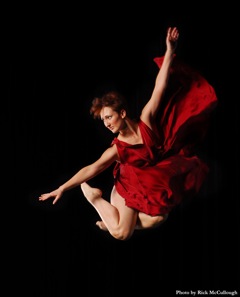MFA Monday
Good Morning Framers! Welcome back to MFA Monday– enjoy this one, we did….
Diane Cahill Bedford holds her M.F.A. in Dance Performance and Choreography from Florida State University. She is a dancer, choreographer, educator, and photographer; she currently serves as Professor of Dance at San Jacinto College South in Houston, TX. Diane has previously taught dance and presented her choreography in New York, Florida, Indiana, South Carolina, New Mexico, and Texas. www.dianecahillbedford.com
M.F.A. Life vs. Real Life
Part III: The Gifts You Receive and Give to Others…
Today, I find myself humbled by the great tragedy of a school shooting in a Connecticut elementary school and asking myself, as a teacher, what do I do for my own students? After watching an interview about a brave teacher who saved her classroom, I was once again reminded about my own fundamental role as an educator. That role is to serve my students. I am their guide, their inspiration, their mentor and so many other roles in their quest for knowledge. While I know many dancers who pursue their M.F.A. are not necessarily interested in teaching full time, or perhaps ever, all graduates will experience teaching and mentoring another person in some fashion. Perhaps that mentoring experience will be solely as a choreographer or as a senior company member to a new professional. But, never-the-less you will be responsible for shaping the life of another person in some meaningful way. How will you shape someone else’s life? This question may not be one you stop to ask yourself in graduate school because so much of the emphasis is on you as the student. But, perhaps this question should become a guiding principle in your own approach.
As a dance artist, much of your life revolves around inspiration. We question what inspires us and try to funnel those thoughts into movement. In an M.F.A. program, you are often challenged to continually find new sources of inspiration, new approaches to work, and basically to be a creative warehouse. This challenge is not unlike the challenges of post M.F.A. work (be it teaching, choreographing, etc). However, in the real world where you are no longer the student, you cannot focus solely on your own inspiration. Especially as a teacher, you must share what inspires you, but you must also find out what inspires your students. As they say, you can lead a horse to water, but you can’t make it drink. As such, your passions and interests may inspire students, but those things alone will not be enough to fuel their creativity. You must also be their mentor: the person that listens to their ideas, fears, hopes, and wishes as you guide them along the path to becoming their own great artists. I suppose that is where we often forget to take notes in grad school. How did our own instructors do the same for us?
Graduate school is the time to be selfish so-to-speak. You are there for your own education and your own growth; your instructors are there to be your mentors and guides. Even though you may be soaking up all the challenges and attention that does not mean you are ungrateful for those blessings. But, one thing your mentors may not stop and tell you is how they guide you. Being a full time teacher myself now feels like becoming a parent (another journey I am soon to embark upon). Your parents may not explain to you how they guided you, but you often wind up following their examples when you step into the role yourself. Sometimes, I wish I had taken better notes of those situations! I think about the subtle questions, the gentle guiding, and the suggestions I was given that helped me find my own inspiration, and I try to duplicate that behavior with my own students. I learn, on a daily basis, what it means to be unselfish in my work.
For some people, this may be a difficult transition. But, it is an imperative one. If after earning an M.F.A. you are not ready to make the focus about someone else, then do not go into teaching full-time. Too often, I hear of or see teachers and professors who do substantial creative work and are masters of developing their craft on a continual basis. But I wonder, in all that creative genius, where do the students factor into the equation? Personally, I am not convinced that the most artistically self-productive people have anything left in the tank for their students. That being said, I am not by any means arguing that teachers should forget to develop their own interests or channel their own inspirations into work. But, if one transitions to the role of teacher, one must be prepared to sacrifice some of their own personal development and gains for the sake of properly mentoring the students. While that transition may not (hopefully) be one of life and death, and while you may not literally be holding your student’s lives in your hands, you will be just as responsible for the development of their artistic lives as your instructors were of your artistic life.
So when you are in grad school, pay attention to how your instructors shape and mentor you. Then, if you decide to teach after you earn your M.F.A., you will hopefully be able to inspire your own students with love and passion for their art and for life. So remember, the greatest gifts you receive in graduate school will be the greatest gifts you can give to others once you complete your degree. And from my experience, when the student becomes the teacher is the moment you really appreciate those M.F.A. experiences and everything that was given to you by those who paved your way.
MFA Mondays

